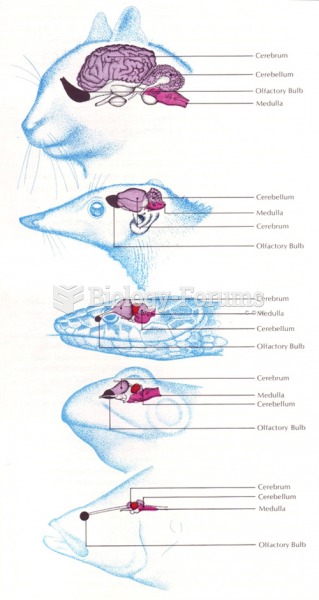|
|
|
Blood is approximately twice as thick as water because of the cells and other components found in it.
The average adult has about 21 square feet of skin.
People who have myopia, or nearsightedness, are not able to see objects at a distance but only up close. It occurs when the cornea is either curved too steeply, the eye is too long, or both. This condition is progressive and worsens with time. More than 100 million people in the United States are nearsighted, but only 20% of those are born with the condition. Diet, eye exercise, drug therapy, and corrective lenses can all help manage nearsightedness.
According to the CDC, approximately 31.7% of the U.S. population has high low-density lipoprotein (LDL) or "bad cholesterol" levels.
Cancer has been around as long as humankind, but only in the second half of the twentieth century did the number of cancer cases explode.
 Key anatomical features of Homo habilis include reduced facial size, a parabolic palate, and some br
Key anatomical features of Homo habilis include reduced facial size, a parabolic palate, and some br
 Control of Circadian Rhythms in Sleep and Waking by the SCN During the day cycle, the DMH inhibits t
Control of Circadian Rhythms in Sleep and Waking by the SCN During the day cycle, the DMH inhibits t





